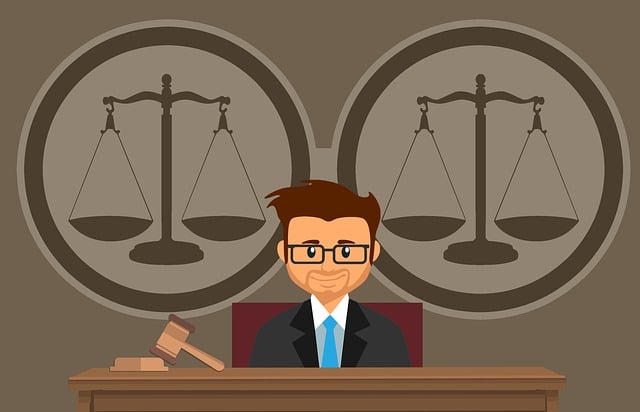Understanding Oregon's strict DUI laws is vital for anyone facing charges, which come with harsh penalties. An effective DUI defense strategy is essential to protect rights and seek a favorable outcome. This includes challenging field sobriety tests' subjectivity through questions about administration and environmental factors, leveraging scientific evidence to examine breath and blood test results, navigating legal procedures to suppress inadmissible evidence, and using expert testimony and character evidence to create reasonable doubt about the accused's guilt. Effective DUI tactics aim to mitigate or dismiss charges by undermining the prosecution's case.
In Oregon, comprehensive DUI defense strategies are paramount for ensuring justice. This article explores effective DUI tactics designed to protect your rights. We delve into understanding the state’s stringent DUI laws and penalties, providing insights on challenging field sobriety tests with scientifically sound methods. Learn how to utilize expert testimony, character evidence, and legal procedures to suppress inadmissible evidence. By mastering these comprehensive DUI defense techniques, you’ll be equipped to navigate Oregon’s complex legal landscape effectively.
- Understanding Oregon's DUI Laws and Penalties
- Effective Strategies for Challenging Field Sobriety Tests
- Utilizing Scientific Evidence to Disprove Impairment
- Navigating Legal Procedures and Motions to Suppress
- Building a Strong Defense with Expert Testimony and Character Evidence
Understanding Oregon's DUI Laws and Penalties

Understanding Oregon’s DUI laws is a critical first step for anyone facing charges. The state has stringent regulations regarding impaired driving, with penalties that can severely impact an individual’s life. Knowing your rights and the specific rules is key to developing effective DUI tactics. For instance, Oregon defines drunk driving as operating a vehicle under the influence of alcohol or drugs, with legal blood alcohol limits strictly enforced.
The consequences for a DUI conviction in Oregon can include substantial fines, license suspension or revocation, and mandatory participation in a driver rehabilitation program. These penalties highlight the importance of building a robust defense strategy. By understanding the law and potential outcomes, individuals can better navigate their legal options and employ effective DUI tactics to protect their rights and seek a favorable outcome.
Effective Strategies for Challenging Field Sobriety Tests

Challenging field sobriety tests is a key component of effective DUI defense strategies in Oregon. These tests, designed to gauge impairment, are often subjective and vulnerable to interpretation. Legal professionals can employ several tactics to undermine their reliability. For instance, questioning the administration of the tests, including proper instructions and consistency, can cast doubt on their results. Additionally, presenting evidence of an individual’s performance under stress or in unfamiliar conditions may reveal potential biases.
Another powerful approach involves examining the officer’s training and qualifications. If the arresting officer lacks specific certification or experience with the particular test given, it strengthens the defense argument. Effective DUI tactics also include challenging the environment where the tests were administered, such as lighting conditions or noise levels, which could have influenced the subject’s performance. By thoroughly scrutinizing these aspects, legal representatives can significantly weaken the prosecution’s case and create reasonable doubt in the jury’s minds.
Utilizing Scientific Evidence to Disprove Impairment

In Oregon, utilizing scientific evidence to disprove impairment is a powerful tool within comprehensive DUI defense techniques. Experts can scrutinize breath and blood test results, challenging the accuracy and reliability of these primary pieces of prosecution evidence. For instance, attorneys may employ forensic toxicologists who can analyze factors like testing methodology, individual metabolism, and potential interference from medications or other substances, thereby casting doubt on the state’s case.
Furthermore, defense teams can leverage scientific research and studies that highlight the limitations of field sobriety tests. These tests, often used to gauge impairment at the scene, are susceptible to human error and subjective interpretation. By presenting alternative explanations for an individual’s behavior during the test, defense attorneys can undermine the prosecution’s assertion of impairment, employing effective DUI tactics to potentially mitigate or even dismiss charges.
Navigating Legal Procedures and Motions to Suppress

Navigating Legal Procedures and Motions to Suppress is a critical aspect of crafting an effective DUI defense in Oregon. Understanding the nuances of legal procedures allows attorneys to challenge the validity of evidence gathered during a traffic stop, which can significantly weaken the prosecution’s case. By meticulously examining each step, from the initial pull-over to the administration of field sobriety tests, defense lawyers can identify procedural errors and motivate judges to suppress inadmissible evidence.
Motions to Suppress are powerful tools in an Oregon DUI case. These motions allow attorneys to contest the use of evidence obtained without a proper warrant or in violation of constitutional rights. Effective DUI tactics involve presenting compelling arguments that demonstrate how evidence was collected unconstitutionally, thereby excluding it from trial and potentially undermining the prosecution’s ability to prove their case beyond a reasonable doubt.
Building a Strong Defense with Expert Testimony and Character Evidence

Building a robust defense strategy in Oregon for a DUI (Driving Under the Influence) case often involves leveraging expert testimony and character evidence to strengthen your position. Expert witnesses can provide valuable insights into various aspects of the incident, such as the accuracy of field sobriety tests, blood or breath test interpretations, and potential influences on the accused’s behavior. This includes medical professionals, toxicologists, or experienced law enforcement analysts who can offer impartial opinions that challenge the prosecution’s case.
Character evidence is another powerful tool. Presenting positive testimonials from friends, family, or colleagues can help paint a picture of the defendant’s responsible nature before the alleged incident. Such testimony aims to create reasonable doubt in the jury’s mind by establishing that the individual’s behavior on the night in question was out of character and unlikely. This approach is an effective DUI tactic, as it shifts the focus onto mitigating factors and personal circumstances.






